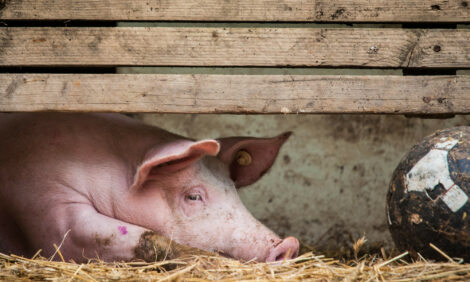



Right Funds and Regulation are Vital for Farming’s Future, says Report
UK - A new report from the NFU urges Government and research providers to invest in agricultural R&D and to enable British farmers to use the latest technologies.The report, Feeding the Future, Four Years On, will be launched at NFU Conference and identifies several innovation needs that will enable British agriculture to boost its competitiveness, resilience and profitability. The NFU is calling for decision-makers, research funders and providers to read the report and help create a funding and regulatory environment where new technologies and innovative practices can be adopted on farm as quickly as possible.
The NFU Conference session entitled Competitiveness: Keeping Ahead of the Game will see NFU Vice President Guy Smith and Head of Robotics and Automation at Harper Adams University, Professor Simon Blackmore assess farming’s current and future use of new, developing technologies.
Commenting ahead of the session Mr Smith said: “Farming and agriculture is already an incredibly innovative industry but it remains very important that farmers recognise new opportunities for better returns, such as those developed from the Agri-Tech Strategy. The priorities listed in this report show the desire to continue building on what the industry already has.
“In the current climate of political uncertainty, there are many challenges out there for farmers, but with this comes real opportunities. For example, the Government’s new Industrial Strategy offers the opportunity to strengthen the food and drink sector as well as farming’s unique position in providing environmental goods and services.”
Farmers across agriculture and horticulture have set out eight research priorities that would boost the sector’s contribution to the economic and environmental performance of the UK food production system. Food and farming is the UK’s biggest manufacturing sector, worth £108 billion and as such is a key powerhouse in the economy.
The eight priorities are:
• Digital, data-driven and engineering technologies
• Crop and livestock genetics and breeding technologies
• Interactions between air, soil, water and crop/animal processes within farming systems
• Integrated approaches to management of crop weeds, pests and diseases
• Integrated approaches to management of animal disease within farming systems
• Evidence-based management and valuation of ecosystem service provision from farming systems
• Skills, training and KE
• Use of social and economic sciences






